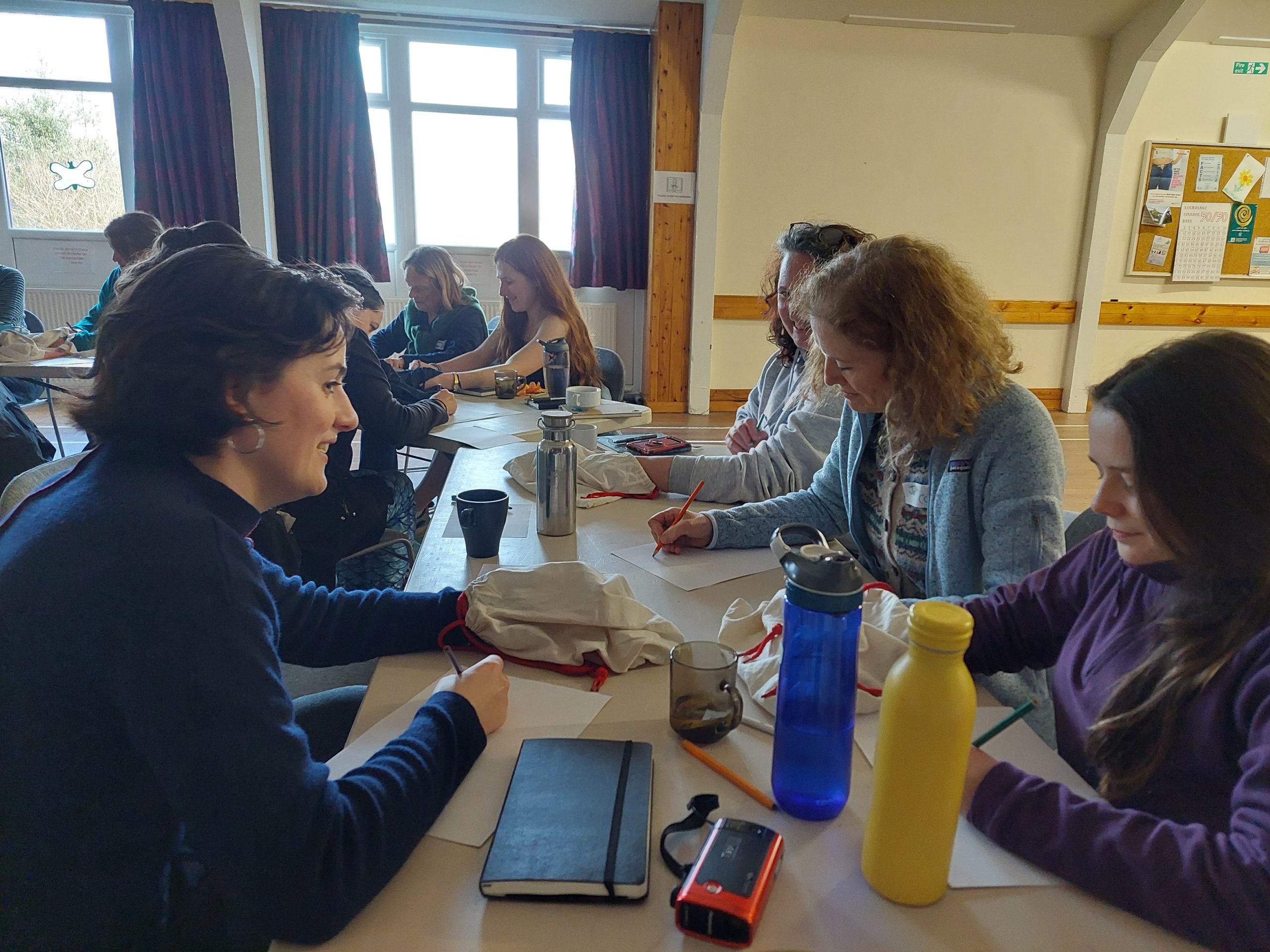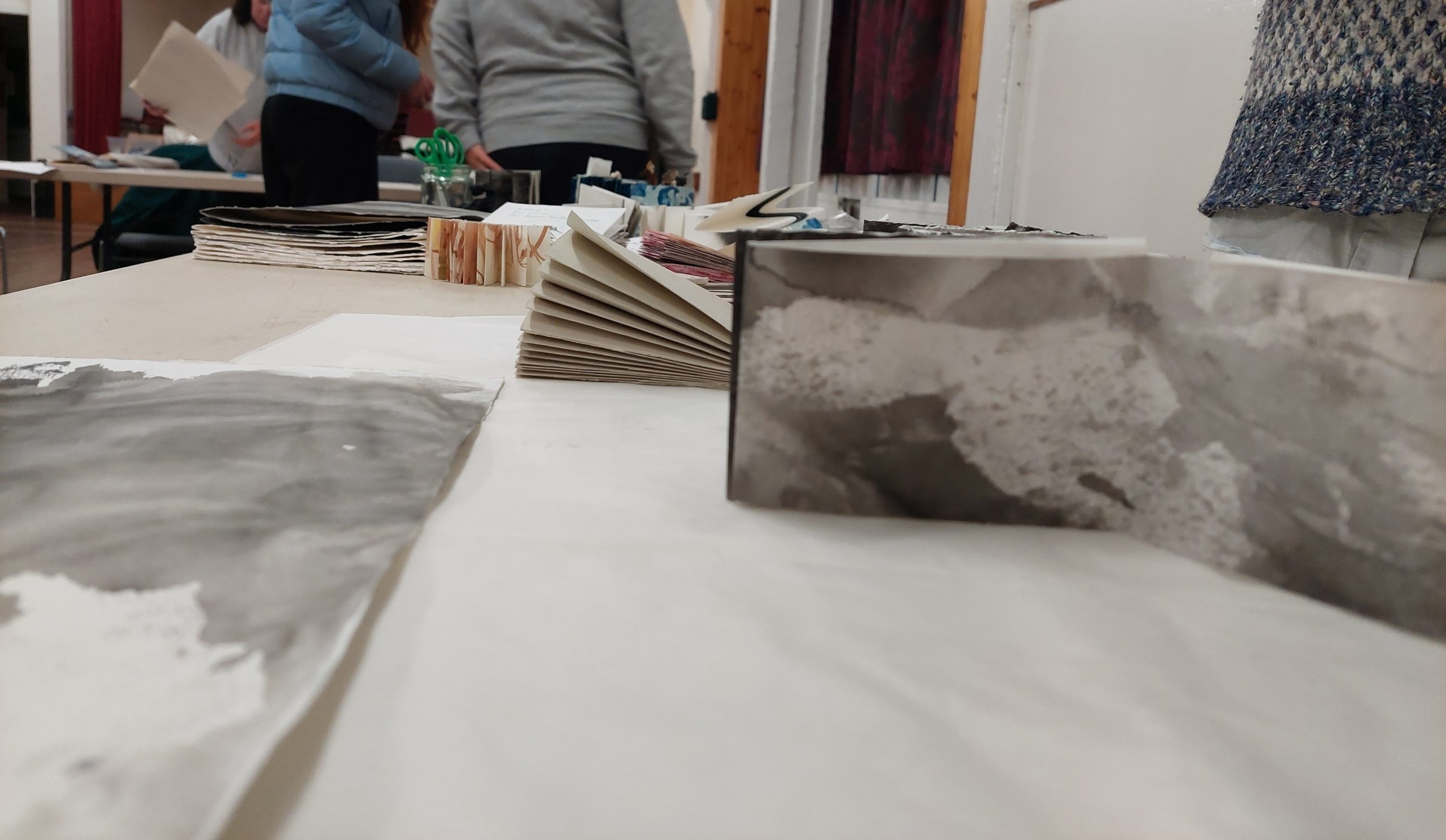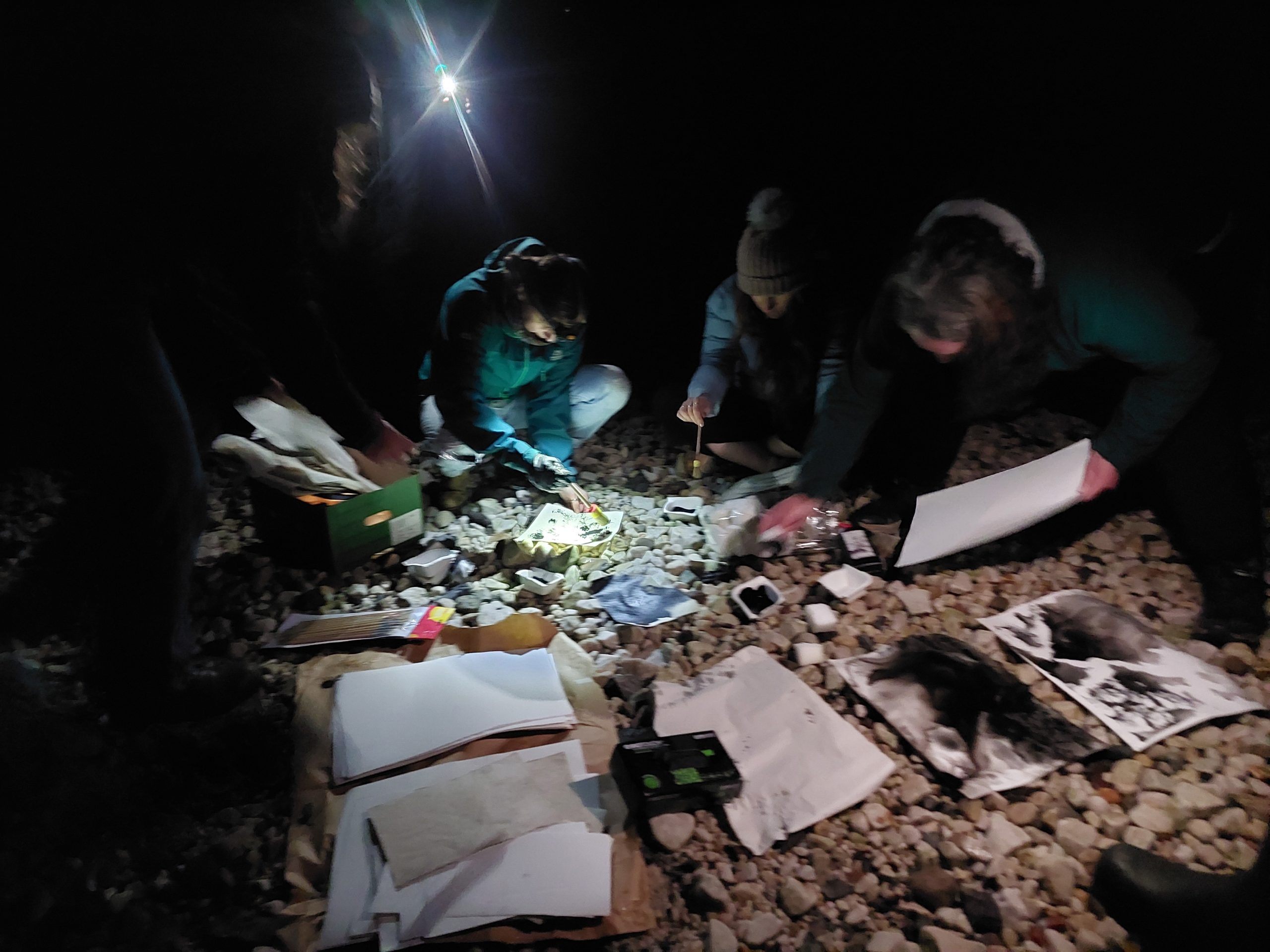Recently, representatives from coastal communities across Scotland came together in Lochaline, on the Morvern peninsula. The purpose of this weekend was to explore how arts, culture and heritage relate to marine conservation, and how community groups can use them to engage new audiences and foster deeper connections with the marine environment. During the weekend, CCN members came together to share skills, knowledge, and ideas on this theme.

Groups shared how they had incorporated arts and culture into their wider work. Tarbert Action on Coastal Litter (TACL) worked with local artists and schools to make octopus sculptures from recycled marine litter, Edinburgh Shoreline engaged with former fishwives in north Edinburgh to record some of their memories, stories and songs from the thriving Newhaven fisheries, and the Argyll Hope Spot set up the world’s first underwater snorkelling artists residency programme – just a few of the creative ideas showcased!

Next, Keira and Danielle from the Argyll Hope Spot led an informative and creative session where we learned how to develop project plans that work with artists to creatively communicate, showcase, or further aspects of marine protection.
Our final workshop was with Georgia Crook, a visual artist and alumnus of the Argyll Hope Spot artists residency. Using ink and seawater from Loch Aline, participants learned to create an accordion ‘book of moments’. This was a really engaging way to connect people with the sea, and a technique that representatives can take back to their own communities.

Throughout the weekend, we also discussed why incorporating arts, culture and heritage into marine and coastal conservation is beneficial. We agreed that these approaches can be an important starting point for many people in engaging with the marine environment and the marine issues we are facing. For many it breaks down barriers to getting involved in marine and coastal conservation projects, and connects more people to our seas.
